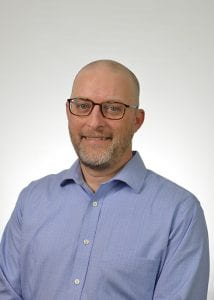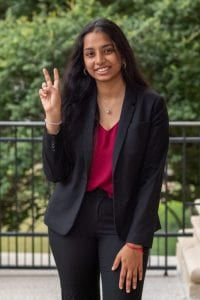Project: Collegiate Social Class and Connectedness: Class in a Transitional Period of Life
Researcher Insights: The purpose of this study was to understand how college-student social class relates to social connectedness during a transitional period of life.
Researchers:
- Dr. Dustin Grabsch – SMU Staff Member | Assistant Provost for Undergraduate Education & Academic Success
- Alexander Jennings-Rentz – SMU Staff Member | Associate Director for Residence Life
- Dr. Robert Kunovich – UT Arlington | Spouse to Dr. Sheri Kunovich – Associate Provost for Student Academic Engagement and Success
- Sakshi Hinduja – SMU undergraduate student
- Dedeepya Chinnam – SMU undergraduate student

Personally, I never really thought about how the people outside of my own group fit into the SMU community, but I knew that SMU is a place that you either thrive in or don’t. I imagine, for the students who feel like they don’t fit into SMU, their differences from the SMU rich-kid stereotype only exacerbates that feeling. However, Alexander Jennings-Rentz, the Associate Director for Residence Life’s (ADRL) Upper-Division Housing, has led the research in cracking open the stereotype of SMU as a “Southern Millionaires University”. Jennings-Rentz and his team have found the stories of other students hidden within the shadows of SMU’s money-centric culture and brought them to light.

‘How does a student’s social class affect their college experience’ is the question that started it all, but what triggered the lightbulb moment? When asked this question, Jennings-Rentz responded, “I felt like it came from two places.”
Jennings-Rentz was previously an RCD at SMU, and it was his first time working at a private university . He said, “the experience of being around students and how that shows up here was a little different. So, in my few years of being an RCD, you just notice that there are students at SMU that have money like the stereotype, but there are also a lot that don’t – that are like a little more traditional social class standing.”

Jennings-Rentz would see that in his RAs, peer leaders, and people in his community, but the research idea came out of a conversation with Dr. Dustin Grabsch. Both Jennings-Rentz and Grabsch noticed how money shows up on campus and agreed to do some research on it.
Grabsch was the lead author of this research project, and Jennings-Rentz’s role in the research project was data collection. Two undergraduate students on this project, Dedeepya Chinnam and Sakshi Hinduja, aided Grabsch in research before, so they were brought-on again to help with this assignment. The last member of the research team, Dr. Robert Kunovich, helped with synthesizing the research data by using his expertise around qualitative research and all the strategies you need to justify research.

From idea to submission, the research project took four months to complete. A survey was emailed randomly to ~1,400 students. After completing the survey, a small selection of students were invited to interview with the research team to share their experiences.
When asked how social-classes show up in their courses, Jennings-Rentz said, “One person was like ‘I’m an engineering major’, and they tell us you have to get this kind of computer, this kind of program, and you have to do this as you come in.”
Working on this research allowed Rentz to see other examples of how social class is displayed on campus. For example, on move-in day “some people pull up with a U-Haul and some people pull up in a Sedan car filled with their stuff and that’s it.”

However, drawing attention to class differences between students is not the goal of this research project. Jennings-Rentz stated, “Our goal was to give voice and story to different people’s experiences at campus…and help people connect and find their communities.”
According to Jennings-Rentz, “college is seen as the great equalizer, you go to college, get a job, and family’s good for the rest of your life, but it’s not always that easy, and like it’s not always the same results for people who go to the same school and so it forced me to think more granularly.”
Not only did research change Jennings-Rentz’s perspective. It also helped him to grow as a researcher. “Research has forced me to think more critically and ask better questions to try to get at the heart of why things are… and make actual change rather than just taking the easy answer,” Jennings-Rentz said.
Thinking critically is a skill that can be cultivated by conducting research, which is why Jennings-Rentz believes “research is a skill that is transferable to life and professional contexts”. As I do my daily job now, I think through things like how do I systematically set this up, what’s the best way to find out what I’m looking for and how do I operationalize it…personally it has allowed me to understand my course material a little more,” Jennings-Rentz said.
Lastly, Jennings-Rentz would like to share a key takeaway from the research with the SMU community. “I think a key takeaway is really pushing yourself or challenging yourself to think more about the totality of what an SMU student is. I think it is very easy as people who work here but also like as students, that talk to the same people… your everyday is just the culmination of people that are like similar to you and as we think about, ‘is campus a welcoming and supportive environment?’ – it might be for your group of people, but it might not always be for a group of other people. And so I challenge people to think through and understand the experiences of people who have different identities and lived experiences and really use that to assess if [campus] really is a welcoming place… If we say we really care about people then it makes sense to understand who they are and then try to make changes to make sure that they can also have a safe place to be.”
Thank you, Alexander Jennings-Rentz, for sharing your time and experience with the SMU community. Also, congratulations to Dr. Dustin Grabsch, Alex Jennings-Rentz, Sakshi Hinduja, Dedeepya Chinnam, and Dr. Robert Kunovich for having their research published! Please check out the article here: https://doi.org/10.1108/JARHE-05-2022-0132